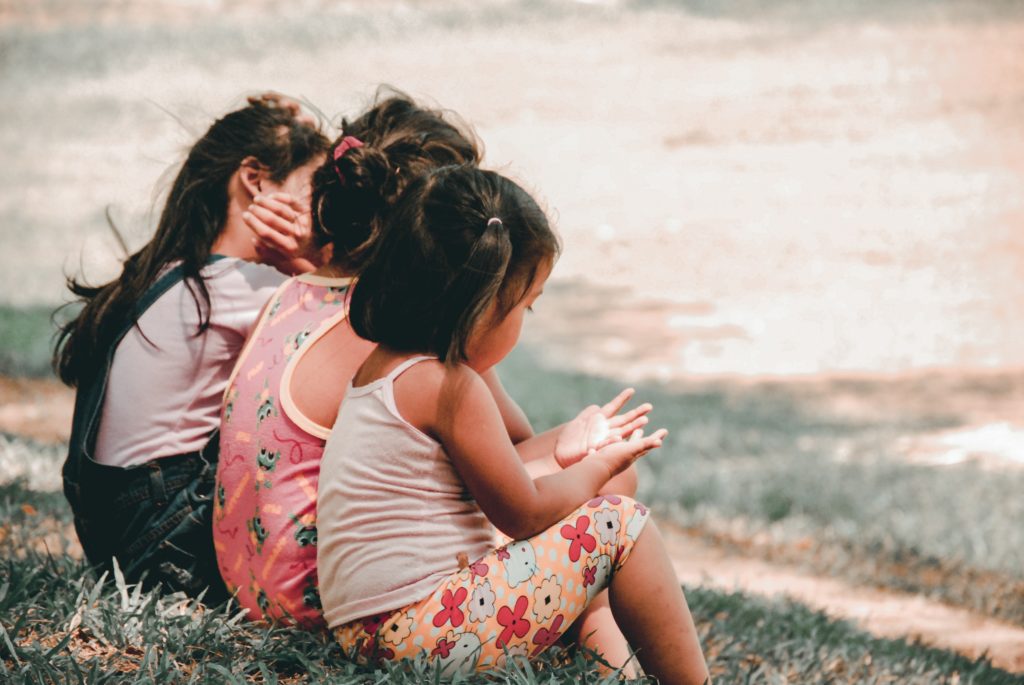 Your child has been learning about emotions from birth, but that doesn’t mean she’s an expert at emotions yet! And nobody needs to tell parents that. Your child’s meltdown over not being able to sit in the chair he wanted last night is evidence enough that preschoolers are still getting the hang of this whole emotion thing.
Your child has been learning about emotions from birth, but that doesn’t mean she’s an expert at emotions yet! And nobody needs to tell parents that. Your child’s meltdown over not being able to sit in the chair he wanted last night is evidence enough that preschoolers are still getting the hang of this whole emotion thing.
In fact, us adults are all still doing our best to regulate our own emotions. It’s no wonder 2-, 3-, and 4-year-old preschoolers still need an extra hand or 12 when it comes to emotions.
But because we’ve spent a few decades learning about our emotions, we often forget that our small children don’t yet know what to do with all their big feelings. Self-awareness does not come naturally. That’s what parents, caregivers, and teachers are for. We’re all here together to guide children to learn about their emotions — and what to do with them.
Children who are supported in their emotions benefit over and over.
Positive Sense of Self
When a child can recognize, express, understand, and manage the many, many feelings that come their way, they develop a positive sense of self. They have the ability to be calm in a variety of situations and to enjoy their experiences, giving them confidence to interact with others and with their environments. A positive relationship with emotions also helps children to be curious learners.
Less Anxiety
We all experience big feelings — sometimes from out of nowhere. These feelings can be scary for adults, so imagine what they must feel like for a small child. To lessen this fear, children need to know that they are allowed to have big feelings. In fact, they should know that big feelings are actually normal. When a parent, teacher, or caregiver validates a feeling instead of dismissing it, the child doesn’t feel the need to fight against the feeling. Any anxiety surrounding that feeling disappears.
Greater Emotional Intelligence
When parents and teachers help children identify their feelings, they begin to understand how to let those feelings out in a healthy way. Not only that, they also have the ability to communicate to you what they are experiencing — because they actually know themselves and know their emotions better.
Quicker Calm
A child who knows how to identify his own emotions is in a better position to calm himself. If he has been validated and has an understanding of what his emotion is, he doesn’t need to fight in confusion. He can learn more quickly what will help him reduce his own stress, and will become emotionally stronger along the way.
Less Brain Clutter
We all know what it’s like when we’re emotionally wrapped up in something and can’t focus on our lives. A child who has learned about emotions gets to use less brain space for unresolved feelings. She gets to resolve her emotions and move on to enjoying her life and her day-to-day activities with confidence and a clear head.
What You Can Do to Help Your Preschooler Manage Emotions
Children develop their emotional skills through their relationships with the important people in their lives. That means parents, caregivers, and teachers play an important role in the healthy development of emotional understanding. Here are some ideas to help you help your preschooler manage emotions.
- Work on yourself. Many of us were not taught how to identify and validate emotions. Learn to identify your own emotions and be at peace with them. Get help and support if you need it.
- Model for your child. Let your child know that it’s okay to have difficult feelings by the way you handle them. It’s positive for your child to see you say something like, “I’m really upset because of something that happened at work, and I need to take a minute to sit on the couch and calm down before I start making dinner.”
- Watch videos about feelings. Find kid-friendly videos that discuss feelings so your child can learn to identify emotions.
- Validate your child’s feelings. Don’t try and talk your child out of his feelings. Yes, it may seem silly for him to cry because you only put peanut butter on one piece of bread instead of two before putting the sandwich together, but telling him he’s silly is not going to help. Let him know his feelings are okay (because they are!). He wanted something to go a certain way and it didn’t, and it must feel frustrating.
- Label feelings. Name your feelings throughout the day, and label the feelings you think your child might be having. “You look happy as you ride your bike.” “Are you sad because your sucker fell on the floor?” This gives your child a large emotional vocabulary for identifying emotions in themselves.
- Accept your child’s feelings. If your child is angry, it isn’t a reflection of poor parenting. Accept that this is how your child feels in this moment.
- Teach calming techniques. In calm times, teach your child how to breathe deeply, draw a picture to express emotions, do a physical activity to get energy out, and more. Explain that they can use these techniques to calm them when they’re feeling upset.
- Discuss book characters. As you read a story together, pause every now and then and ask how you think the character must be feeling. Look for clues like facial expressions or behaviors to help identify the feeling.
- Praise. When your child uses words to express her feelings, praise her. “I like how you told your friend you felt sad when she took your toy.”
Our culture is not always accepting of emotions, and many of us were conditioned to suppress our feelings. As you work with your child, this may turn into a journey of learning for both you and your child. Do your best to be as responsive to your child as you can, but forgive yourself when it doesn’t come naturally or when you make a mistake. Children don’t need us to be perfect. They learn we love them and are there for them through many interactions built up over time. Do your best, and you’ll both find a healthy relationship with emotions.
At UDA Creative Arts Preschool in Draper, Utah, we know that a healthy emotional framework is critical for a child’s success in life, and we work hard to teach preschoolers how to identify, accept, and appropriately express their emotions. Give us a call at (801) 523-5930, or visit us online to schedule a time to see how we support emotional health in our classrooms.


